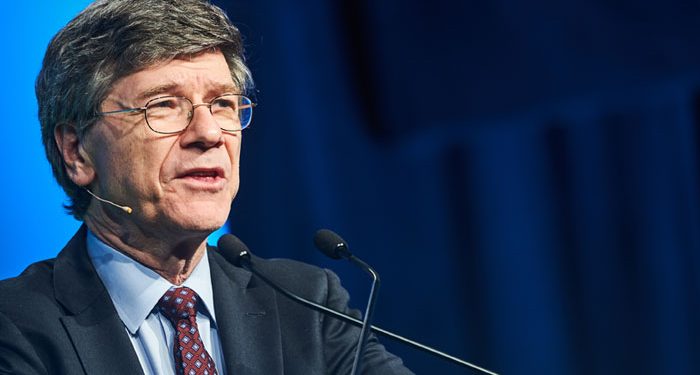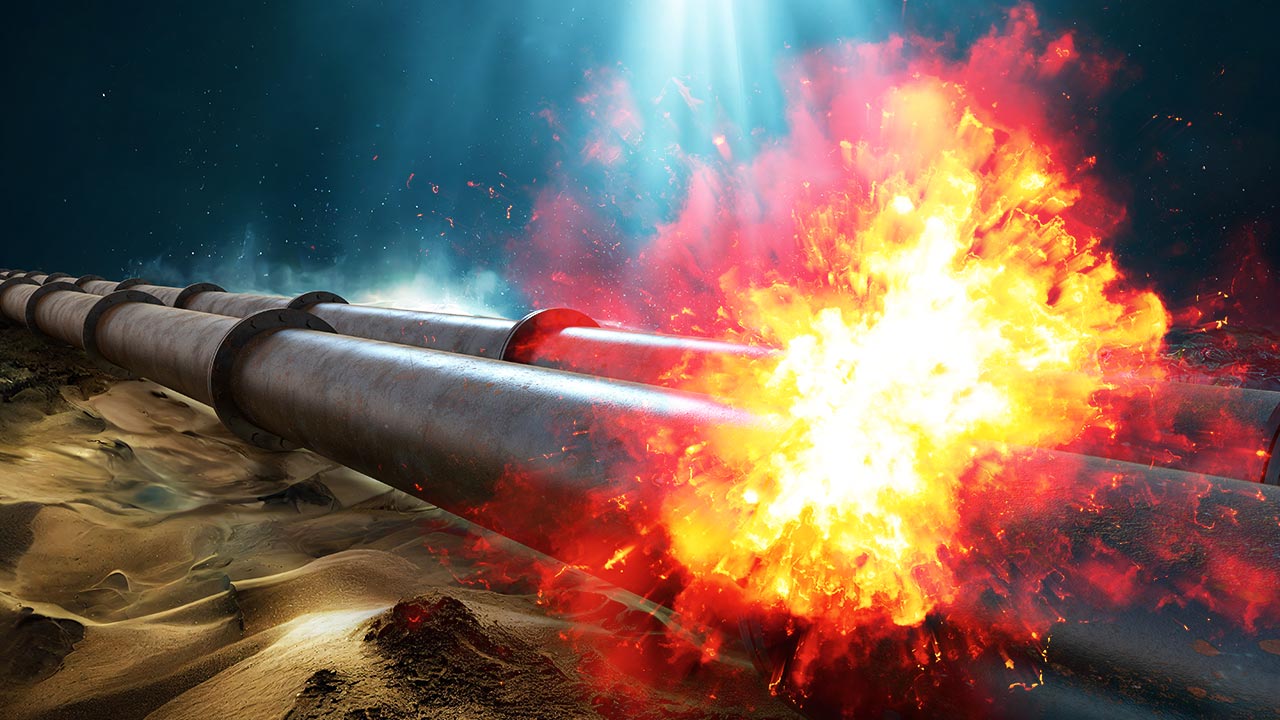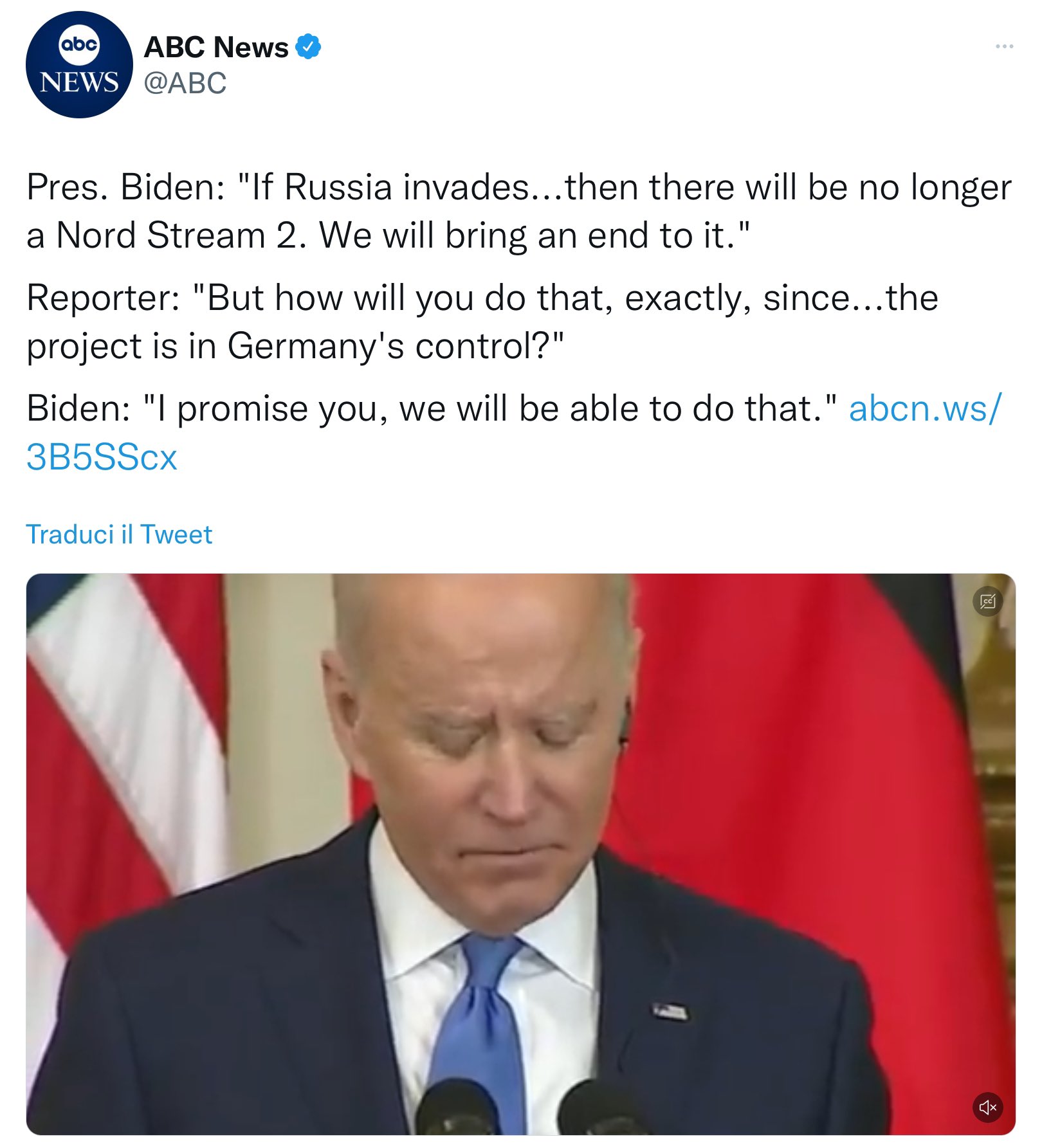Ray McGovern Addresses UN Security Council
On Nord Stream Investigations

Jeffery Sachs Addresses the UN Security Council
Jeffery Sachs / Consortium News
(February 21, 2023) — My name is Jeffrey Sachs. I am a university professor at Columbia University. I’m a specialist in the global economy, including global trade, finance, infrastructure and economic statecraft. I have appeared before the UN Security Council on my own behalf. I represent no government or organization in the testimony that I will deliver.
The destruction of the Nord Stream pipelines on September 26th, 2022, constitutes an act of international terrorism and represents a threat to the peace.
It is the responsibility of the UN Security Council to take up the question of who might have carried out the act in order to bring the perpetrator to international justice to pursue compensation for the damaged parties and to prevent future such actions.
The consequences of the destruction of the Nord Stream pipelines are enormous. They include not only the vast economic losses related to the pipelines themselves and their future potential use, but also the heightened threat to transit boundary infrastructure of all kinds submarine Internet cables, international pipelines for gas and hydrogen transboundary power transmission, offshore wind farms and more.
The global transformation to green energy will require considerable transboundary infrastructure, including in international waters. Countries need to have full confidence that their infrastructure will not be destroyed by third parties. Some European countries have recently expressed concern over the safety of their offshore infrastructure. For all of these reasons, the investigation by the UN Security Council of the Nord Stream explosions is a high global priority.
The destruction of the Nord Stream pipelines required a very high degree of planning, expertise and technological capacity. The Nord Stream 2 pipelines are a marvel of engineering. Each section of pipe is of steel of 4.5 centimeter thickness, and with a pipeline internal diameter of 1.15 meters. The pipe is encased in concrete of 10.9 centimeter thickness. Weight of each section of concrete encased pipe is 24 metric tons.
The Nord Stream 2 pipelines, some 1200 kilometers in length, contained around 200,000 pipes. The pipelines sit on the sea floor. Destroying a pipeline of heavy rolled steel encased in concrete at depths of 70 to 90 meters requires a highly advanced technology for transportation of the explosives. Diving to install the explosives and detonation to do so undetected in the exclusive economic zones of Denmark and Sweden adds greatly to the complexity of the operation.
As a number of senior officials have publicly confirmed, an action of this sort must have been carried out by a state level actor. Only a handful of state level actors have both the technical capacity and access to the Baltic Sea to have carried out this action, including the United States, Russia, the United Kingdom, Poland, Norway, Germany, Denmark and Sweden, either individually or in some combination.
Ukraine lacks the necessary technologies, as well as access to the Baltic Sea. A recent report by the Washington Post revealed that the intelligence agencies of the NATO countries have privately concluded that there is no evidence whatsoever that Russia carried out this action. This also comports with the fact that Russia had no obvious motive to carry out this act of terrorism on its own critical infrastructure.
Indeed, Russia is likely to bear considerable expenses to repair the pipelines. Three countries have reportedly carried out investigations of the Nord Stream terrorism. Denmark, Germany and Sweden. These countries presumably know much more about the circumstances of the terrorist attack. Sweden in particular, has perhaps the most to tell the world about the crime scene, which its divers investigated. Yet instead of sharing this information globally, Sweden has kept the results of its investigation secret from the rest of the world.
Sweden has refused to share its findings with Russia and turned down a joint investigation with Denmark and Germany in the interest of global peace. The UN Security Council should require these countries to immediately turn over the results of their investigations to the UN Security Council.
There is only one detailed account to date of the Nord Stream destruction. The one recently put forward by investigative journalist Seymour Hersh, ostensibly based on information leaked to Hersh by an unnamed source. Hersh attributes the Nord Stream destruction to a decision ordered by US President Joe Biden and carried out by US agents in a covert operation that Hersh describes in detail.

The White House has described Hersh’s account as, quote, completely and utterly false, unquote, but did not offer any information contradicting Hersh’s account and did not offer any alternative explanation. Senior US officials made statements before and after the Nord Stream destruction that showed the US animus towards the pipelines. On January 27th, 2022, Undersecretary of State Victoria Nuland tweeted, quote, If Russia invades Ukraine one way or another, Nord Stream two will not move forward, end quote.
On February 7th, President Biden said, quote, If Russia invades again, then there will be no longer Nord Stream 2 We will bring an end to it. End quote. When asked by the reporter how he would do that, he responded, quote, I promise you, we will be able to do it. End quote. On September 30th, 2022, immediately following the terrorist attack on the pipeline, Secretary of State Antony Blinken declared that the destruction of the pipeline is, quote, also a tremendous opportunity.
It’s a tremendous opportunity to once and for all remove the dependance on Russian energy, and that’s to take away from Vladimir Putin the weaponization of energy as a means of advancing his imperial design. End quote. On January 28th, 2023, Undersecretary Nuland declared, in testimony to Senator Ted Cruz in the US Senate, quote, I am, and I think the administration is very gratified to know that Nord Stream 2 is now, as you like to say, a hunk of metal at the bottom of the sea. End quote.
Such language is not at all appropriate in the face of international terrorism. I hope that the United States, together with all other Security Council members, will condemn this act of international terrorism and join together in an urgent UN Security Council led investigation of this international crime in order to determine the truth. The truth is not yet known by the world, but it is knowable more than ever.
The world depends on the UN Security Council to do its work to stop the escalation to a new world war. The world will be safe only when the permanent members work together diplomatically to solve global crises, including the war in Ukraine and the rising tensions in East Asia. The UN Security Council provides the unique global venue for that peace affirming work.
More than ever, we need a healthy, functioning UN Security Council carrying out the mission assigned to it by the UN Charter. A UN Security Council objective investigation of the Nord Stream 2 terrorism, in which all countries contribute what they know, is important for the global confidence in this body and most importantly, for global peace and sustainable development.
Thank you very much.

Jeffrey D. Sachs is a University Professor and Director of the Center for Sustainable Development at Columbia University, where he directed The Earth Institute from 2002 until 2016. He is also President of the UN Sustainable Development Solutions Network and a commissioner of the UN Broadband Commission for Development. He has been advisor to three United Nations Secretaries-General, and currently serves as an SDG Advocate under Secretary-General Antonio Guterres. Sachs is the author, most recently, of “A New Foreign Policy: Beyond American Exceptionalism” (2020). Other books include: “Building the New American Economy: Smart, Fair, and Sustainable” (2017) and “The Age of Sustainable Development,” (2015) with
